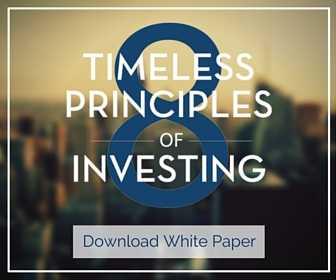Warren Buffett is not only one of the most successful and admired investors, but also a widely respected public figure. His comments or actions have the ability to shape public opinion on specific companies, the overall economy or other matters almost immediately. His down to earth persona and plain-spoken delivery in addition to his proven track record of success have meant that many follow his advice on investment matters and in general.
We can learn from Buffett’s life as well as his statements.
Warren Buffett was born in Omaha and became interested in investing in his youth, eventually attending the Wharton School of the University of Pennsylvania and the University of Nebraska prior to earning a master’s degree from Columbia University, where he was able to study with Benjamin Graham, a notable proponent of value investing.
Buffett has frequently stated the importance Graham had on his life and career. Prior to the market crash of 1929, there was little focus of any rigor on the appropriate way to value a security. Influenced in part by these events, Graham went on to write some of the most important texts still studied by investors today including Security Analysis and The Intelligent Investor. These texts have influenced the investment decisions of countless investors including one of the most successful in history.
Following his studies with Graham, Buffett met long-time business partner Charlie Munger and acquired a textile company named Berkshire Hathaway that would become the name of his holding company containing diversified investments in a variety of industries, Buffett would be quick to point out that these are in industries he understands. He notably avoided investments in technology stocks preceding and as a result was not as heavily affected by the resulting bubble as were other investors. While Buffett received criticism along the way, he maintained his discipline and stuck to his overall strategy.
Buffett’s management of Berkshire Hathaway has led him to be recognized as one of the most successful and respected CEOs alive. Berkshire has owned shares in many prominent companies throughout the years including Coca-Cola, the Washington Post, and Wells Fargo. It’s worth noting how many of his investments are still held. At the time of this writing, Coca-Cola, purchased initially in 1988, remains a prominent holding for Berkshire.
Throughout his time with Berkshire, Buffett has been recognized as an ethical leader. He has generally allowed the management of the companies he owns great latitude in their management decisions but has shown little tolerance for executives who have encountered legal or regulatory difficulties. An example of this was his ownership stake in Salomon Brothers. During a scandal in the Salomon CEO and a rogue trader at Salomon, Buffet needed to take control of the company until the difficulties associated with their actions passed. Given the wide holdings for Berkshire, it is notable how infrequent such ethical shortcomings have been.
Buffett’s philanthropic activity is admired by many. Having pledged to give the majority of his wealth to charitable causes, he hopes to help provide solutions for many of the world’s pressing issues. He has encouraged others who have accumulated substantial wealth to do the same through The Giving Pledge, a campaign that has thus far gained over 150 signatures, many of whom are billionaires to donate the majority of their wealth to charity.
Notable in his activities is his partnership and personal friendship with fellow bbusinessmanBill Gates. For his philanthropic interests, Buffett has chosen the Bill and Melinda Gates Foundation as the primary recipient of his wealth. Buffett has often stated his admiration for Gates who has indicated a mutual admiration as well.
In recent years Buffett has not been shy about stating his political preferences. Those who admire his statements often point out that his political preferences would often work against his economic interests. He has actively endorsed political candidates and has made his disagreements with current and past administrations known publically. Despite this willingness to wade into political discussions on occasion, Buffett is well respected by those from a variety of backgrounds and political ideologies.

Holding Period
Regarding holding period of investments, Buffett is in for the long haul. He’s stated “Our favorite holding period is forever.” and has previously indicated that he wants to own companies that he “wouldn’t buy any stocks I would not be happy owning if they stopped trading it for three years.” This shows a focus on long-term goals rather than short term reaction that many investors could learn from.
Risk
Buffett has a unique outlook on the topic of risk, defining it as “not knowing what you’re doing.” This shows a general attitude of acceptance of the risks associated with the market so long as they are not accepted blindly.
Inheritance
Buffett does not believe children should receive the type of dynastic wealth that allows them to remain idle. Regarding inheritance, he has stated that children should “be given enough to do what they want to do, but not enough to be idle.” His further observations on this issue address it from an ethical standpoint. He believes that “the idea of getting a lifetime supply of food stamps based on coming out of the right womb strikes at my idea of fairness.” Buffett’s decision to give a large portion of his wealth to the Bill and Melinda Gates foundation rather than exclusively to his heirs reinforces this viewpoint.
Market Predictions
Skeptical of those attempting to make market predictions, Buffett observes that “The fact that people will be full of greed, fear or folly is predictable. The sequence is not predictable.” This comment will not surprise those familiar with his focus on company fundamentals rather than market movements. He has actually stated he has “Never met a man who can predict the markets.”
Ethics
Buffett is also widely considered a model for ethics in business. He believes “The investment manager must put his client first in everything he does.” Buffett has consistently avoided business scandal over a long successful and profitable career, serving as a model to many.
Advice on Stocks
Rather than abstractions, Buffett sees stocks for what they are, ownership interests in the underlying company. His advice on stocks is to “Look for businesses you understand, run by people you trust and are comfortable with and leave them alone for a long time.”
Bitcoin and Cryptocurrencies
It’s not surprising that Buffett is skeptical of Bitcoin and other Cryptocurrencies. He has said, “In terms of cryptocurrencies, generally, I can say with almost certainty that they will come to a bad ending.”
Historical Returns
A good history of return is not necessarily a reason to buy for Buffett. He observes that “the investor of today does not profit from yesterday’s growth.” This is useful advice for many investors who may be tempted to chase market returns rather than evaluating the present suitability of an investment.
Choosing Investments
Buffett has spoken often about how he chooses investments but has never reduced the decision to a single factor. “It’s like when you marry a girl,” he says. “Is it her eyes? Her personality? It’s a whole bunch of things you can’t separate.” This is a very telling observation that demonstrates a high level and broad outlook on decision making. Buffett doesn’t just have a “box to check” in order to come to a yes or no conclusion on owning a company. He looks holistically at the business as a whole.
Hiring
Like many successful managers, Buffett has fostered an environment where his employees succeed in their roles. He recounts regarding hiring that “somebody once said that in looking for people to hire, you look for the three qualities: integrity, intelligence and energy. And, if they don’t have the first, the other two will kill you.”
Initial Public Offerings (IPOs)
Buffett has observed the perils of investing in initial public offerings, stating that “investors should be looking to companies that will have good value in ten years.”
Personality Suitable for Investment
Buffett recognizes the importance of personality in investment. He says “The most important quality for an investor is temperament, not intellect. You don’t need tons of IQ in this business. You don’t have to be able to play three-dimensional chess or duplicate bridge. You need a temperament that derives great pleasure neither from being with the crowd nor against the crowd. You know you’re right, not because of the position of others, but because your facts and your reasoning are right.”
The Limitations of Wealth
Among Buffett’s most interesting observations are those related to wealth. As one of the wealthiest, and at times the wealthiest man alive, Buffett brings a unique insight into the topic of wealth. He observes that “Money, to some extent, sometimes let you be in more interesting environments. But, it can’t change how many people love you or how healthy you are.”
Taxes
Buffett has often observed that he pays a lower tax rate than his secretary. This led to the proposal during the Obama administration of a “Buffett Rule” that would have affected those with compensation greater than one million per year. He has also favored an inheritance tax, comparing its repeal to “choosing the 2020 Olympic team by picking the eldest sons of the gold-medal winners in the 2000 Olympics.”
Inflation
Buffett has often voiced his concern over inflation. Notably in 1977 during a period of high inflation he stated that “Stocks are probably still the best of all the poor alternatives in an era of inflation, as long as you buy at appropriate prices.” It is interesting to note that this was far from the unanimous view held by many at the time. An emphasis on gold, commodities and other hard assets had increased as a preferred option for those with inflation concerns.
Socially Responsible Investing
Buffett has often made observations on the ethical implications of investments, sometimes altering his view over time. While he made favorable comments above Tobacco companies in the 80s, the following decade let to a change in opinion. He observed that “the economy of the business may be fine, but that doesn’t mean it has a bright future.”
Investments in Technology
Buffett has observed regarding technology companies that it’s “hard to estimate future value.” He has long advised to invest in “companies you understand.” This is a perfect example of Buffett’s focus on fundamental analysis of the underlying business rather than market trends or momentum as a basis for investment decision making.
Health Care
While he described the Affordable Care Act as “insufficient” to meet the nation’s health care objectives, Buffett does support expanding insurance coverage. He has been critical of the cost of health care in the U.S. based on a percentage of GDP and is skeptical of the claims that this is because of higher quality of care than that available elsewhere. He stated, “If you want the very best, I mean if you want to spend a million dollars to prolong your life 3 months in a coma or something then the US is probably the best.”
Price vs. Value
Buffett recounts that Benjamin Graham told him, “Price is what you pay; value is what you get.” He observed that this statement had implications for investment, “Whether we’re talking about socks or stocks, I like buying quality merchandise when it is marked down.”
Buffett’s thoughts on a wide variety of matters are closely followed by many. The annual shareholder meeting of his company Berkshire Hathaway has even been called “Woodstock for capitalists.” You may be able to use some of these insights gained over a long and successful career to better your own financial situation and improve your life overall. After living a long and successful life, Buffett has provided an example that we may all benefit from in several areas. Don’t, however, fall into the trap Buffett has observed as particularly common regarding history. “What we learn from history is that people don’t learn from history.”












